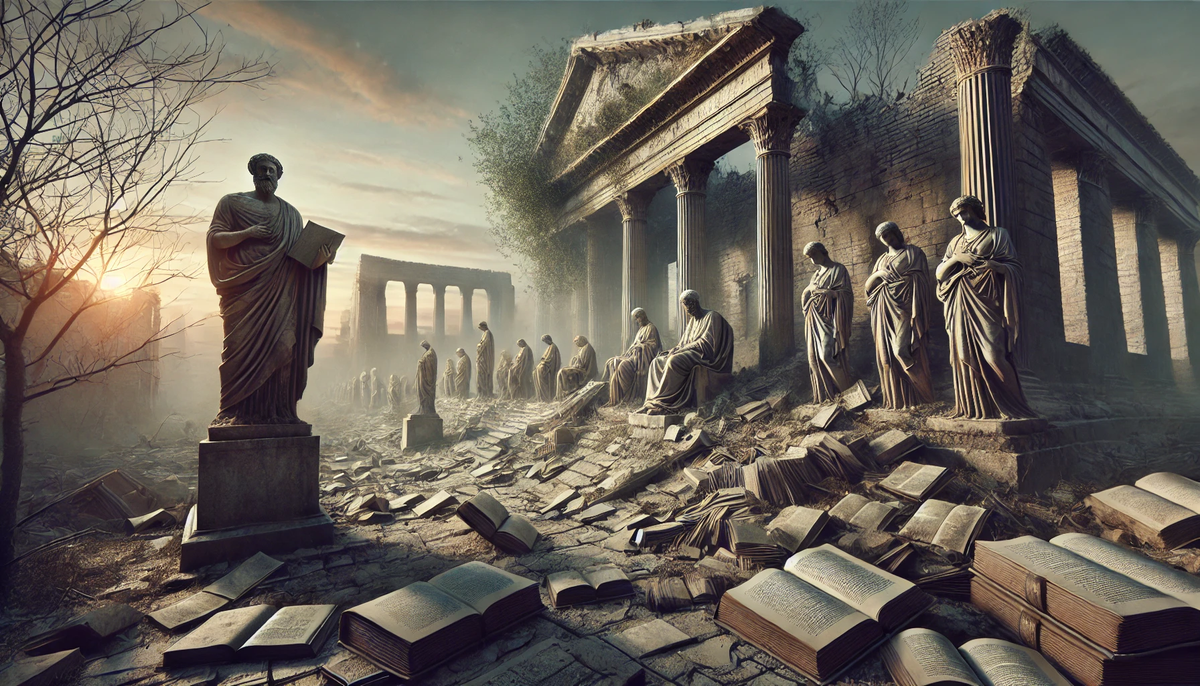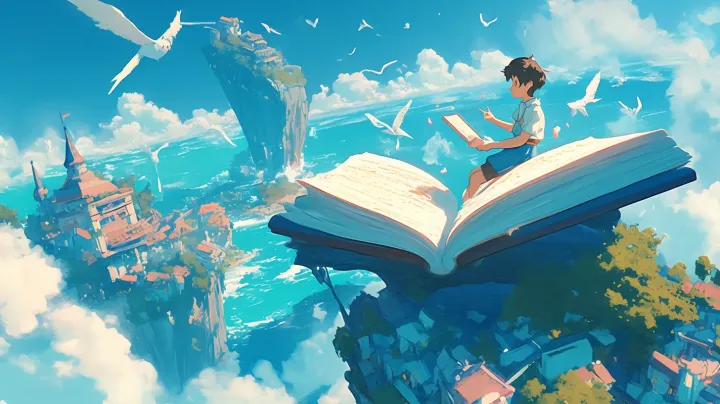Does Anyone Deserve Being Remembered?
A Random Guy’s Thoughts on Why the “Struggle for Legacy” Is Overrated

My struggle with the concept of legacy.
From childhood, I grew up hearing stories of legends and heroes — especially about those who suffered a lot to leave behind peace for the next generations. Their lives shape an entire generation, and their important days are celebrated locally, nationally and internationally. As a teenager, I dreamed of becoming one such hero and leaving behind a grand legacy of success and impact. Then came a few years through a valley of disappointment where these lofty goals seemed so far away, and I could only focus on my selfish needs. Now, though, I realise my current state is no different than a cog in a giant machine. As a data scientist, I develop a few modules that help someone, while I am, in turn, helped by many engineers, doctors, drivers, carpenters, etc.
Despite understanding this role, I still haven’t let go of the dream called “legacy”. I still wanted to be remembered, even if by only a few people. However, recently, I understood that my journey is uncertain. It can end at any random instance because of things I can never foresee. So, why am I not able to let go of this dream? Why do I want to struggle more to pursue this goal instead of living peacefully and happily? What is this “legacy” in the first place?
I became curious again and started digging — and now, I want to share what I understood with you.
What is Legacy?
We all understand that our lives have an end. Despite all our efforts to be healthy by working out, eating healthy and meditating, we know that an end has to come at some point. However, as the being who can predict his end, we all want to know what comes after. Unfortunately, we haven’t and probably could never find the answer. Hence, some cope with this through religion and yearn for heaven or hell, while others follow different ways. One such way is to try to stay in people’s minds.
‘Every man has two deaths, when he is buried in the ground and the last time someone says his name. In some ways, men can be immortal.’
— Ernest Hemingway
How can you remain in the minds of the masses? We don’t know. Then, let’s take a look back at history. Who are a few people that we remember even after death?
- People who became symbols for their ideologies — Gandhi, Nelson Mandela, Schindler and many others.
- People who achieved significant things — Socrates, Einstein, Galileo, Alan Turing, Napolean and many others
- People who committed atrocities — Hitler, Mao Zedong, Emperor Nero, Caligula and many others.
There are a lot more categories. But, from this, we know that it’s not only the “good” ones who are remembered — and many agree that Legacy is not linked with morality. We cannot conclude that someone “deserves” to be remembered just because they left a legacy behind, either good or bad.
Ultimately, many of these are transformed into their ideologies. Gandhi is a symbol of non-violence, while Hitler is the symbol of war and atrocities. History may remember famous names, but in most cases, they are just names, not the actual people. But what about the everyday people? The family members and local figures who impacted our lives in quiet ways?
The other angle…
We not only remember the great heroes or devils of history. We also remember our close ones: the dreams they had and the things they achieved. My grandfather was a journalist during the 70s and 80s. He was criticised and even beaten because of a few of his articles. He had also, in fact, helped many people in his village. After his death, people collectively raised a statue to remind people of the things he did. However, being his grandson, I don’t know much about him or the things he did, as he passed away a decade before he was born. I’ve never interacted with him, and my next generation would probably rarely hear his name. And people of the next generation will someday question why the statue exists.
Moving away from the personal tale, let’s look at the Japanese mayor, Mr. Wamura. During his time, he ordered a 51 ft high wall in the ’70s to protect his people from tsunamis. However, the people of the village of Fudai called him crazy and foolish till his death and even after it. However, 14 years after Wamura’s death, the residents of the Fudai village were saved from the 2011 Tsunami solely because of the wall Mr Wamura constructed.
Even if you encounter opposition, have conviction and finish what you start. In the end, people will understand.
— Mr. Wamura in his farewell speech to the village employees.
Now, is Mr. Wamura someone who deserves to be remembered? Our internal voice shouts, “Absolutely”. Does this mean that only those who do something good even after being disrespected should be remembered? Obviously not. And these local heroes aren’t the only ones we remember. What about our loved ones? They deserve to be remembered, right?
Well, even that’s not entirely happening…
Let’s go back through our family trees. We remember our parents and our grandparents. Most people drop off here as they don’t know their great-grandparent’s names. Ultimately, we reach at most 6–7 generations before we ever know anyone else. Why is that so? Aren’t these loved ones of our ancestors? Why aren’t they remembered? The hard pill is that they were insignificant to their successive generations. Don’t get me wrong, some Eastern countries still maintain family records and know many of their lineage, but even that tradition is dying down.
Where do we stand now that we realised this?
Each of the earlier questions goes down a deeper rabbit hole of whys and whats, but those are ultimately the conclusions I’ve found. So, what value does it carry to be remembered after you pass away? Some answer this question as “Nothing”. Indeed. We don’t find any value. We do it for the hope. We push ourselves forward with the only hope that the next generation remembers or validates our struggle. For some, this grand desire would be the only thing sustaining their sanity. While others only want to be remembered as a hard-working husband or a good parent.
This makes me question everything I wanted to do till now. However, this understanding also has a positive perspective. We can still do something wholeheartedly. Now that we are free of the shackles of future generations, we can wholeheartedly pursue our curiosities. Advancements in our fields only happen because of our curiosity. Instead of worrying about how our children will remember us, we can spend quality time with them, doing simple things together. Things need not always make sense.
My teenage self wouldn’t be happy about this, but that’s the part of growing up. Your definition of happiness changes with time. Maybe this is how one can work wholeheartedly. Maybe this is not. I believe I still have to experience life to find the answers. And I believe sharing this here would help me meet people with the necessary understanding to help me. If you do, please share them down below!
Thanks for reading till the end. I hope you found some value in this story of mine. Until the next time — happy reading.
Follow The Story Taste for more!


